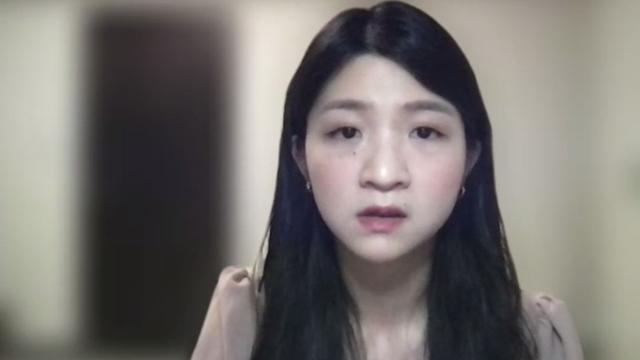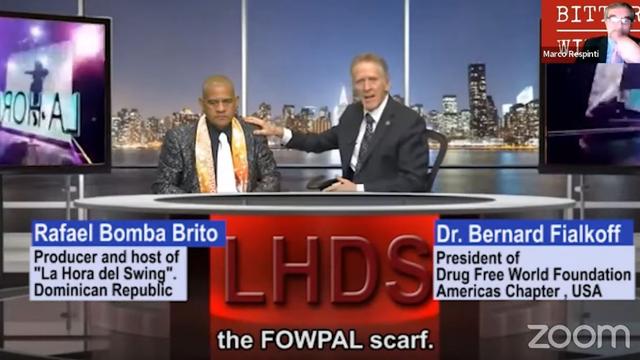Tolerance is the first step towards freedom of religion or belief. It is imperative the Taiwanese government grants it to Tai Ji Men.
by Daniela Bovolenta

On November 16, 2022, International Day of Tolerance, CESNUR, the Center for Studies on New Religions, and Human Rights Without Frontiers organized one of their bi-monthly webinars, on the theme “Tolerance for Tai Ji Men” (a full video of the event is available).
Introducing the event, Karolina Maria Hess, a researcher at the Institute of Sociology, University of Silesia, Katowice, explained that one of the aims of the webinar was to celebrate the success of the appeal in favor of Tai Ji Men she signed together with several other scholars on June 13, 2022. It has now been signed by many distinguished Taiwanese scholars and personalities as well. The appeal summarized the Tai Ji Men case and asked the government of Taiwan to find a political solution urgently.
Hess then introduced a video on the “Global Prayers for Love and Peace” of October 16, 2022, an event of planetary significance co-organized by Tai Ji Men together with several partners, including Bitter Winter. She then presented the first two speakers, PierLuigi Zoccatelli, professor of Sociology of Religions at Pontifical Salesian University in Torino, Italy, and Massimo Introvigne, an Italian sociologist who serves as managing director of CESNUR and editor-in-chief of Bitter Winter.
Zoccatelli mentioned the debates in late-20th-century Catholic Church on the difference between religious liberty and religious tolerance. While the 19th-century Catholic doctrine taught that only the truth, i.e., Catholicism, was fully entitled to liberty and the other religions had a lesser right to tolerance, with the declaration “Dignitatis Humanae” of the Second Vatican Council, in 1965, the Catholic Church embraced the principle of freedom of religion. As Pope Benedict XVI explained, Zoccatelli noted, this did not imply an endorsement of relativism. Each human being has a duty to pursue the truth, but this quest should develop freely without interferences from the state. While religious liberty is a broader concept than tolerance, Zoccatelli explained, tolerance is a cultural climate that prepares full-fledged freedom of religion. In Taiwan, Tai Ji Men dizi have been victims of intolerance, Zoccatelli concluded, but as long as intolerance continues, a country cannot fully embrace religious liberty.

Introvigne traced the roots both of the modern concept of tolerance and of some dangerous misunderstandings about it to the 18th-century French enlightenment philosophers. They argued that all groups should be tolerated except those that are themselves intolerant, a formula they adopted to exclude from the scope of tolerance the Catholic Church, thus preparing its persecution by the French Revolution. But most religions and spiritual movements, Introvigne argued, by claiming their unique relationship with the truth can be considered “intolerant” by these standards. A faulty culture of tolerance was thus created, inherently hostile to religion and spirituality, which also manifested itself in the Tai Ji Men case in Taiwan. Tolerance may be limited, Introvigne concluded, only when religious or spiritual groups perpetrate or advocate violence, not when their doctrines and lifestyle are regarded with hostility by the powers that be.
Hess then introduced Willy Fautré, co-founder and director of Human Rights Without Frontiers, who distinguished between “toleration” and “tolerance.” Toleration is the mere fact that members of a dominant religion or political philosophy decide to tolerate, perhaps temporarily, some minorities. Tolerance, as defined by UNESCO and other United Nations bodies, is somewhat more, because it recognizes that minorities have a right to be tolerated. Ultimately, Fautré said, true tolerance can only be based on conscience and love for humanity. By teaching these values, Tai Ji Men’s Shifu (Grand Master) Dr. Hong Tao-Tze emerged as a champion of tolerance, well-known through the world and at the United Nations, Fautré added. These teachings are needed, Fautré concluded, at a time when horrific manifestations of intolerance continue in several countries, and the Tai Ji Men case demonstrates that tolerance is not guaranteed even in democratic countries.
Fautré then introduced a video where several Taiwanese and international personalities and scholars offered their testimonies, calling for respect of human rights, tolerance, and a solution of the Tai Ji Men case, which they analyzed as an egregious case of tax injustice and denial of freedom of religion or belief. He then presented the testimonies of five dizi (disciples) of Tai Ji Men.

Chiang Yu-Yang, a doctor of Chinese medicine, explained the importance of the spirit of tolerance in traditional Chinese culture and wisdom and in his own practice, whose ideal is to treat all patients as if they were the doctor’s relatives. His practice of qigong and self-cultivation as a Tai Ji Men dizi, Chiang reported, greatly helped him in acquiring this attitude. However, Chiang said, a mistake often made is to confuse tolerance with connivence. Not everything should be tolerated. Evil actions should not be tolerated but exposed. For this reason dizi, who are in general very tolerant, refuse to tolerate the injustices and violations of law of the Tai Ji Men case and continue to denounce them, Chiang concluded.
Kate Wu, a sales deputy manager in an equipment manufacturing company, reported how she was taught by the Shifu of Tai Ji Men to be strict with herself and tolerant of others, something that it is not always easy to put in practice. By participating in Tai Ji Men activities, she improved her understanding and practice of this principle, and the event of October 16 further taught her that tolerance and love based on conscience and oriented to peace are universal values embracing the whole world. Paradoxically, Wu said, Taiwan’s government, while praising Tai Ji Men’s activities, has repaid the movement with tax harassment and injustice. However, dizi have persisted for 26 years in affirming their love for peace and justice, hoping that their testimony will one day persuade the government to guarantee genuine tolerance to Tai Ji Men, Wu concluded.

Julia Lin, an elementary school teacher, reported that she was already a Tai Ji Men dizi and used to go out with her Tai Ji Men uniform when the case started in 1996. Because of the media slander, her relatives and colleagues tried to discourage her. Gradually, however, they had to acknowledge that Tai Ji Men practice had made Lin a better person and teacher. She continues to teach pupils the value of conscience, she said. She has happily participated in the events of October 16, and has also been part of the protests about the Tai Ji Men case calling for a reform of what she called Taiwan’s “absurd tax system.”
Mickey Chang, who works in the field of marketing, recalled how during the Martial Law period in 1973 the Ministry of Education tried to impose Mandarin language only, banning Taiwanese, Hokkien, Hakka, and indigenous languages, thus greatly damaging the richness of Taiwan’s cultural diversity. Happily, this diversity was later looked at with more tolerance. Chang emphasized the role of Tai Ji Men dizi in presenting to the world the richness of Taiwanese culture at their own expenses, and reported about some significant trips where she accompanied Dr. Hong to Singapore and the U.S. Like other speakers, Chang lamented that Tai Ji Men’s important efforts to spread Taiwanese culture internationally, which benefit all Taiwanese citizens, did not prevent local bureaucrats to spread intolerance, discrimination, and persecution against them.
Oscar Chou, a fresh graduate, noted that excessive reliance on smartphones and the Internet and the COVID-19 pandemic made some less tolerant of others. Tai Ji Men’s message of peace, love, and conscience offers a solution to these problems, and also promotes tolerance and the value of religious liberty. Chou reported about his international travels to promote Tai Ji Men’s message of love and peace, focusing in particular on the 2022 International Religious Freedom Summit in Washington DC, where the injustice vested on Tai Ji Men Shifu and dizi was also denounced. He concluded by mentioning his participation in the events of October 16, and the fact that Dr. Hong launched the date of October 16 as “World Prayer Day,” a theme that will be examined in future webinars.

Marco Respinti, director-in-charge of Bitter Winter, offered the conclusions of the webinar. He returned to a criticism of the French 18th-century “philosophes” (a notion somewhat different from “philosophers” and indicating more militant activists) and their manipulative and ambiguous notion of tolerance (he noted that Voltaire was not very tolerant of Jews and Africans either). He also analyzed the expression “zero tolerance,” whose use confirms that not all forms of “tolerance” are good. There are social evils we should indeed not tolerate at all. Perhaps, Respinti, said, we should always go beyond the notion of religious tolerance, and call for religious liberty. That would avoid the ambiguities that determined the persecution of Tai Ji Men, Respinti concluded; Tai Ji Men dizi deserve much more than tolerance.
The event concluded with a video featuring an interview to Rafael “Bomba” Brito, the Dominican producer and anchorman of the well-known TV show “La Hora del Swing” by Bernard Fialkoff, a medical doctor specialized in dentistry who serves as president of the American chapter of the Foundation for a Drug Free World. Both have encountered the activities promoted by Dr. Hong, and praised his efforts for peace, conscience, and love.

Source: Bitter Winter

